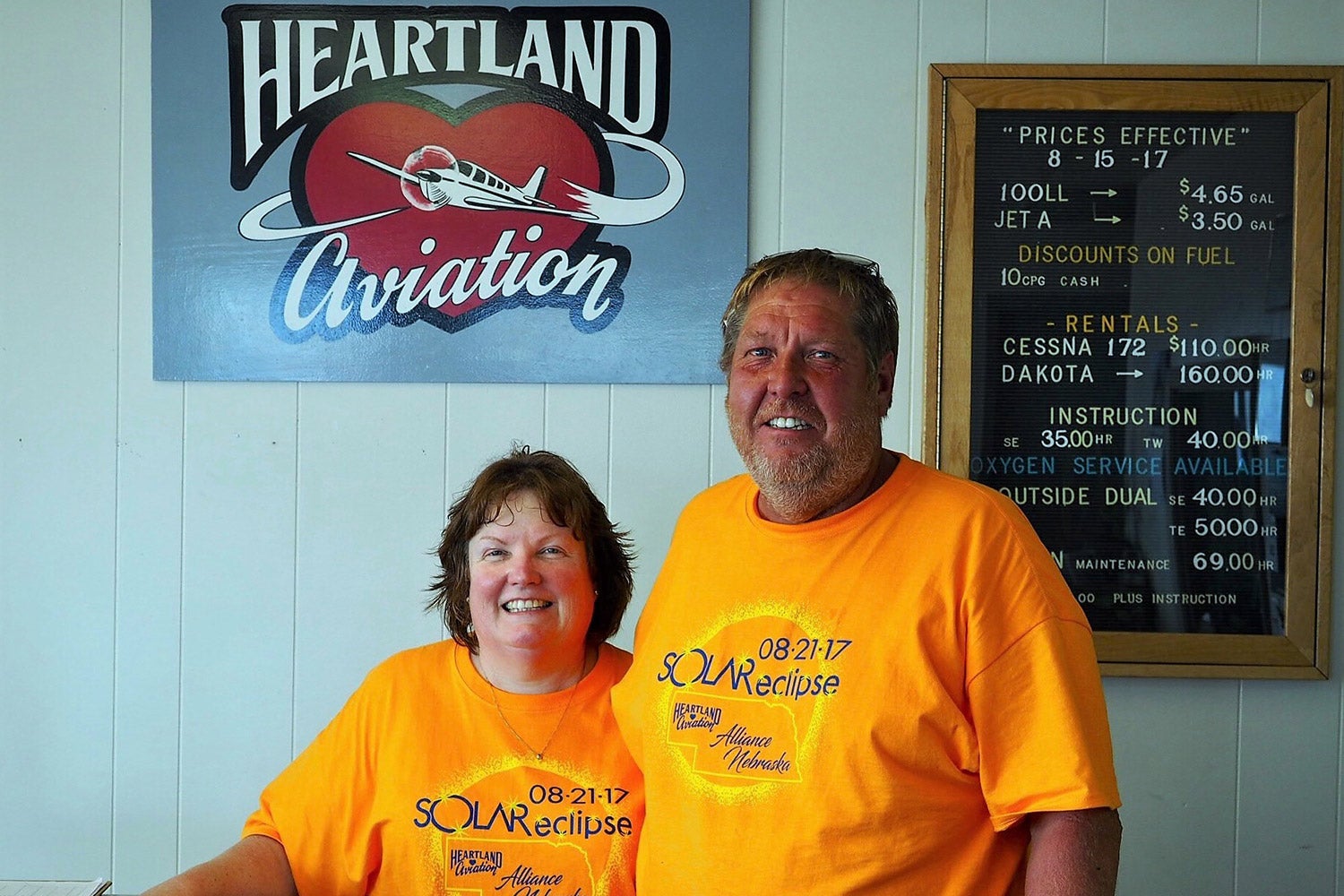There was nobody to marshal us in as we wheeled into the parking spot.
After we shut the old Navajo down and started looking around to see where to go after we got out, a man ran up to the pilot side of the airplane. I opened the little side window and expectantly bent an ear, only to hear him say, “You can’t park here!”
“Where can we park?” I asked.
“I don’t know,” he said, “but you can’t park here!”
It was not unusual for this trip. On our monthlong tour of Australian airports, we were discovering that most don’t have FBOs the way nearly every airport in the United States does. FBOs are the wonderful legacy of the roving barnstormers who settled down for a more stable life and became “fixed base operators.”
Without businesses focused on taking care of the needs of general aviation, GA pilots are on their own and airport operations are focused on what is known in Australia as “regular public transport,” or airline operations. This leaves GA pilots without access to terminal buildings or restroom facilities and all the other amenities that come with an FBO. We were forced to find our own parking, often in the grass, snag a roaming fuel truck when it wasn’t serving an airliner, figure out how to get our luggage out of the gate and procure our own ground transportation.
We were in Australia to share the details of the U.S. system with Australian pilots. When we described arriving at airports with competing FBOs offering free steaks and wine, and an attractive young woman from each waving flags to lure us in, Australian pilots were in disbelief. One in the front row exclaimed to another, “BS, that just can’t be true.”
Although the days of free steaks and wine and fetching greeters waving flags seem to be over, back in the States we still have it good. Many FBOs in Middle America represent the ideal of mom-and-pop operations, providing parking, fuel and connection to the local community with down-home warmth and hospitality. This is certainly true of Heartland Aviation’s Jeff and Gaylene Jensen, who extended a warm welcome and put on a wonderful eclipse party for fly-in attendees at Alliance, Nebraska’s municipal airport last August (Sky Kings, November 2017). I routinely say to FBOs, “Thanks for being here, and taking such good care of us.”
I usually get a confused “Huh?” for an answer. I explain to them that I have experienced flying without FBOs and it is not as practical, or nearly as much fun.
Due to the increasing range of business jets, we have reason to be concerned about the preservation of delightful Middle American FBOs and the airport and community access they provide. As we saw in Australia, airports without an FBO become far less accommodating to GA. It is a serious concern for general aviation.

Surprisingly, we have business jets to thank for our wonderful network of FBOs in the United States. Many simply could not survive on the business generated by piston airplanes alone. Back when John and I were flying our Cessna 340 around the Midwest, teaching live two-day weekend ground schools, I remember sitting in airport cafes (also an endangered species) and watching Learjet after Learjet pull in for a quick turn on their way from coast to coast. The joke was that the early Lears gulped fuel at such a rate that the flight crew experienced a low-fuel emergency right after takeoff. When business jets became longer-ranged, and more of them could reach their cross-country destinations without a fuel stop en route, Middle America truly started to become “fly-over country.” FBO businesses there have become more precarious, and as a result, the number of our mom-and-pop FBOs in Middle America is declining.
Much of the jet-fuel sales that would have been made by midcountry FBOs have been shifted to prime destination airports. These airports are having such a heyday that piston general aviation airplanes are seen as annoyances. While 100LL fuel prices in midcountry can be less than $3 per gallon, some FBOs at these prime destination airports charge over $8 a gallon. Often, in addition, they assess ramp fees and overnight parking fees in the hundreds of dollars.
The root problem is that most of these airports don’t provide aircraft parking except at FBOs. Consequently, all transient airplanes are required to use an FBO and buy a minimum amount of fuel or pay a minimum ramp fee. Due to the high prices, this has made many of these airports and their runways, taxiways and ramps, which the public invested in, inaccessible to many general aviation pilots.
This loss of airport access is a serious concern for the future of general aviation. A simple and elegant solution for airports without an affordable FBO, or without any FBO at all, may be to make available transient parking that doesn’t require the use of an FBO. This should be required at every airport where the government provides funding. With mobile phones, and the ready access to off-airport transportation that ride-hailing apps like Uber and Lyft now provide, using transient parking without the services of an FBO has become much more practical.
There are some airports that already have such parking arrangements, including Lunken Field in Cincinnati, which John and I used recently. But they are few and far between. And the problem is, due to concerns for airport security, you have to call to get through the gate and back to your airplane. This limits the hours when you can return to your plane, and the spontaneity that is such a valuable attribute of general aviation.
Advances in technology may help out here. A pilot leaving the transient parking area for the street could now pose for a camera on the way out. Upon re-entry, a similar camera could capture the image of the pilot. Biometric facial recognition could then confirm that the person returning to the airplane is the pilot who flew it in. If a pilot can fly an airplane into an airport without being vetted by security, the same pilot flying it out shouldn’t have to be either. Such a sensible, low-risk approach to airport security would be beneficial at every airport.
There will be pilots who, even at prime destination airports, would prefer to pay the prices the FBOs charge to receive their services. But they shouldn’t be forced to do so to gain access to the airport any more than drivers should be required by the government to use a particular gas station as a condition of using the road.
It would be great for those of us who have been priced out of prime destination airports to regain access to these airports that government funding has helped pay for. Plus, if pilots aren’t forced to use the FBOs at prime destination airports, they could buy their still-needed fuel at a less fortuitously located FBO that desperately needs their business to stay alive. One way or another, the future of general aviation as we know it depends on keeping these FBOs viable.




